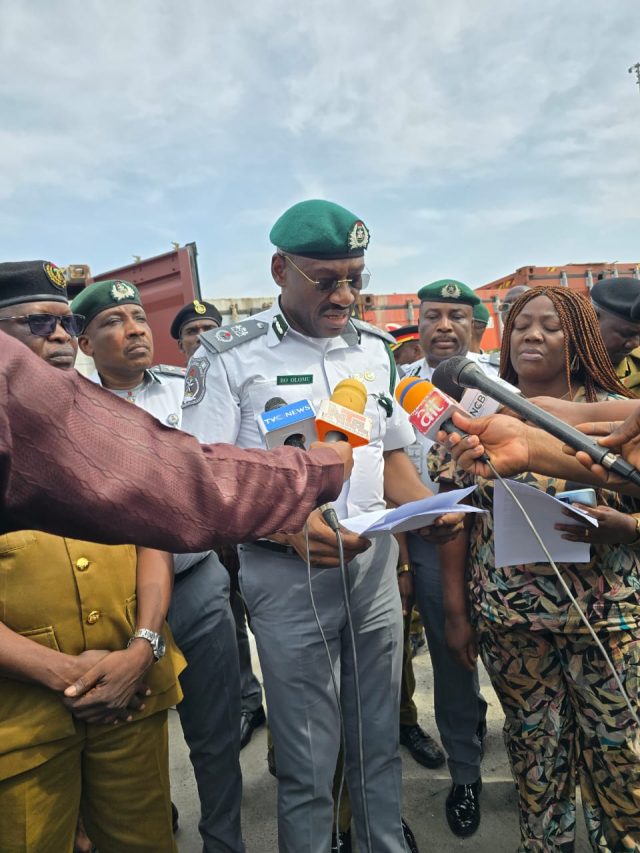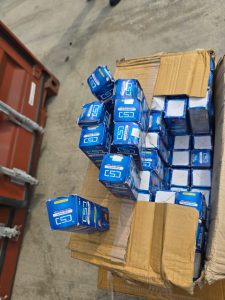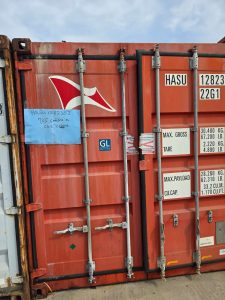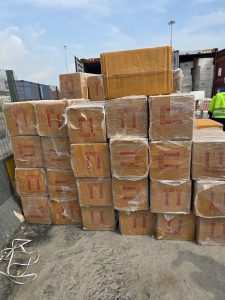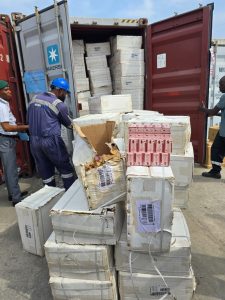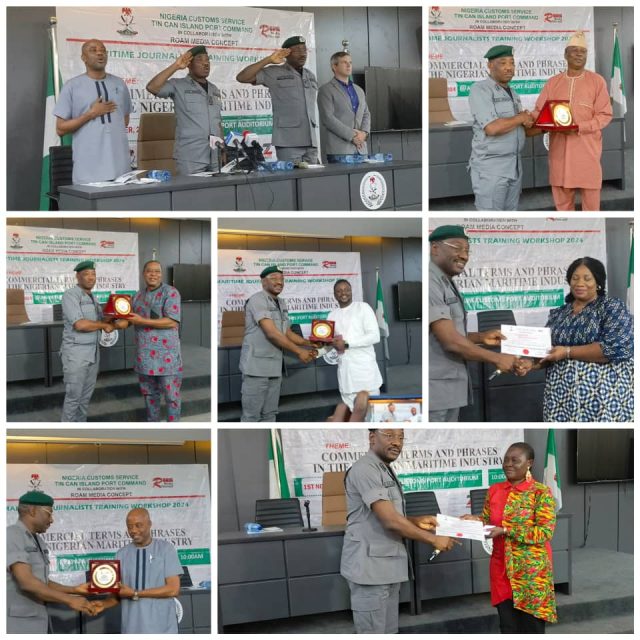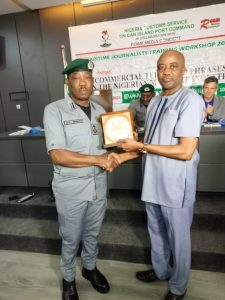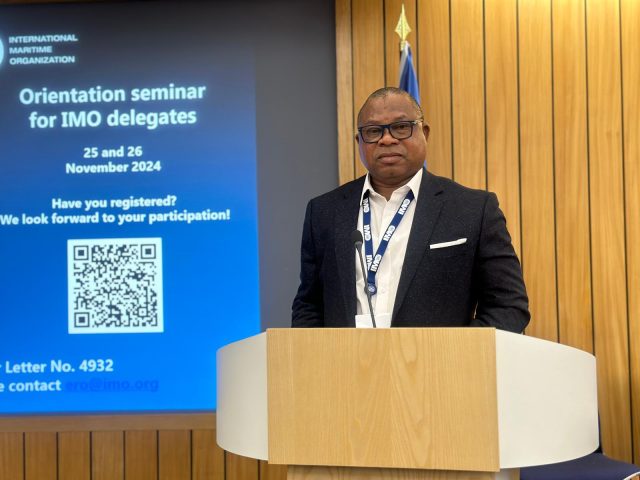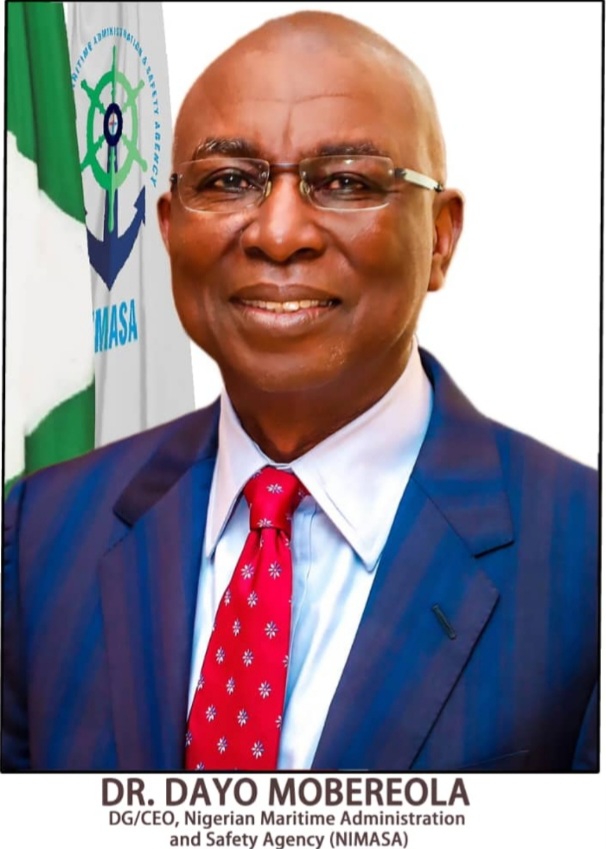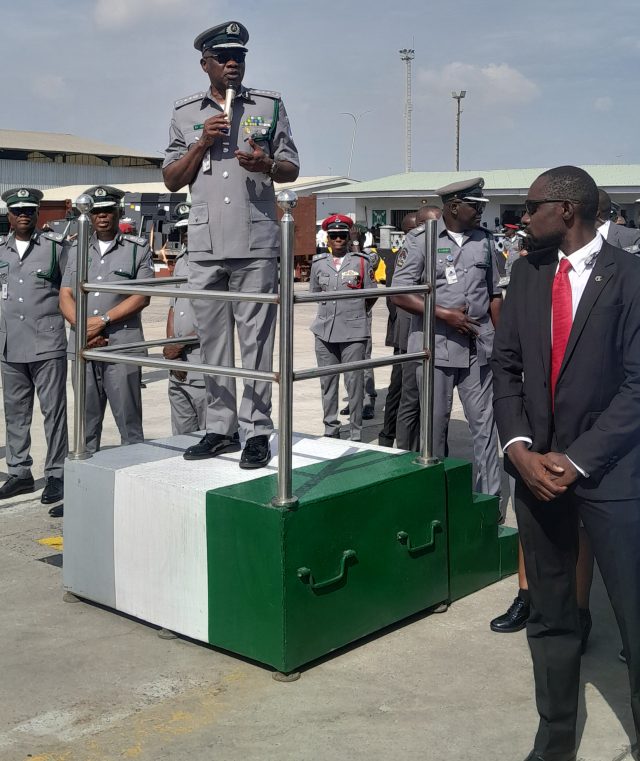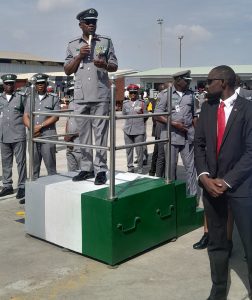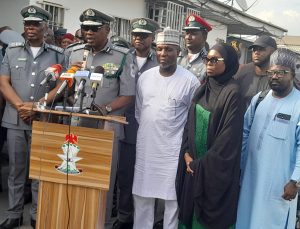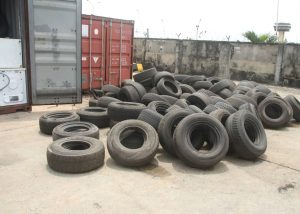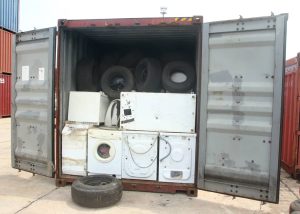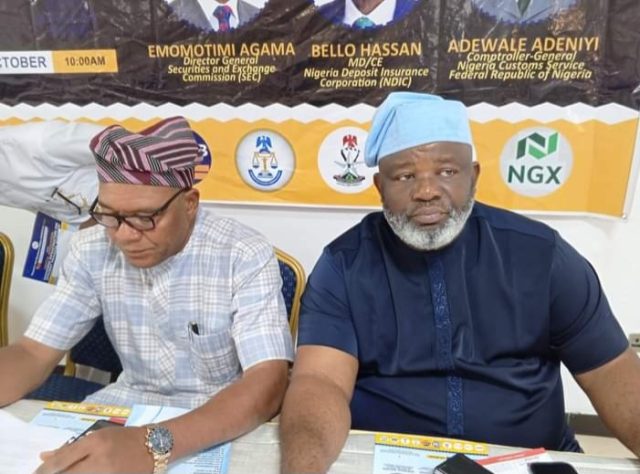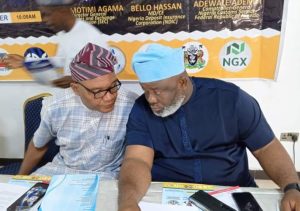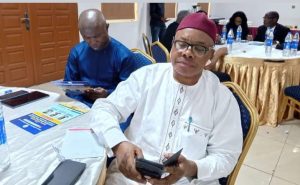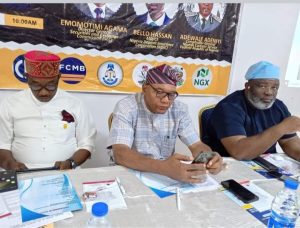The Customs Area Controller of Tincan Island Command of Nigeria Customs Service, Comptroller Dera Nnadi has disclosed that the Service has since embraced the use of digital and technological innovations not just for its modernization project drive but also as a pathway to more transparent, efficient, and effective operations.
He added that digitalisation is pivotal in enhancing the efficacy of trade facilitation and administration procedures, of which to harness the opportunities, governments worldwide are transforming and adapting to technological revolution.
Comptroller Nnadi made this known while presenting a paper titled “STRATEGIC IMPORTANCE OF DIGITAL INFRASTRUCTURE IN IMPORT DUTY COLLECTION AND ACCOUNTABILITY” at the recent Finance and Business Online Publishers Association 2024 Workshop held in Lekki, Lagos.
Nnadi who represented the CGC, Bashir Adewale Adeyanju MFR, at the workshop disclosed that the ability to connect to people and information has become common place and is transforming economies, businesses, and the society.
According to the Area Controller, digitalisation has emerged as a transformative force, leveraging information and communication technologies and digital solutions to revolutionize traditional trade processes in the ever-evolving landscape of global trade and revenue collection.
He hinted that as trade volumes grow, adopting digital solutions aligns with the Service’s larger goals of improving trade facilitation and boosting revenue collection and accountability.
According to him, digital infrastructure refers to the designated physical and software-based components working together to relay information and digital products and services from one point to another.
They include, but are not limited to: Networks and digital communication suits, virtualization and software, and Mobile telecom and broadband.
He stated that the NCS is central to Nigeria’s economy, generating significant revenue through the collection of import duties, taxes, and levies. However, like many other customs organisations globally, it has faced several challenges, including manual processes and delays in customs processes and procedures.
“In a globalized and highly competitive environment, customs agencies need to be faster, more reliable, and more transparent. To this end, the NCS has initiated several projects to digitize its operations, which will significantly enhance import duty collection and overall accountability”
Explainning the key digitalization projects of the Nigeria Customs Service, the Tincan Island Customs boss said “There are various key digitalization projects of the NCS which include Automated Customs processing systems, E-Customs Modernisation project, Authorised Economic Operator (AEO), and Advanced ruling system.
“The Automated Customs Operating Systems are at the core of modern Customs operations and are used for automating the submission, processing, and verification of Import and Export documentation. Automated systems adopted by NCS include: Electronic payment platform. The use of e-payment systems for
Customs duties and taxes have greatly enhanced the transparency and efficiency of revenue collection.
“Traders pay duties electronically through collecting banks while the banks remit to CBN within 24 hours, thereby reducing the delays and risks associated with cash transactions. These platforms provide a secure and auditable record of payments, ensuring accountability and minimizing revenue leakages.
“Automated System for Customs Data (ASYCUDA).ASYCUDA an
electronic system devised under the auspices of UNCTAD (the United Nations Conference for Trade and Development) was introduced into NCS operations in 1990.
” It was replaced by ASYCUDA 2.7 version in early 2000 and further upgraded to ASYCUDA 3.0” or “ASYCUDA++” between 2006 – 2010. The resultant effect of the system provided NCS with an efficient, integrated and automated control platform to monitor cargo travelling across borders within a framework of Customs clearance laws, regulations and processing.
“Nigeria Integrated Customs Information System (NICIS).Adopted in 2014, the implementation of NICIS saw the incorporation of additional features which paved way for advanced digital systems such as Single Window operation in the clearance process. Lessons learned from the implementation of NICIS I informed the design and deployment of subsequent systems, such as NICIS II and the broader e-Customs Project.
“Nigeria Integrated Customs Information System (NICIS II). The NCS migrated from NICIS to NICIS II in 2017, making it possible for the Service to achieve a paradigm shift from manual Customs procedures to paperless e-Customs procedures. The Service was able to handle larger volumes of trade data, automating the process of documentation, duty assessment and goods clearance.
“The NCS Modernization Project, a flagship project of the NCS is a Public Partnership Program expected to generate over $176 billion in revenue for the Nigerian government over a 20-year concession period. The project aims to fully automate customs operations and integrate various stakeholders in the trade ecosystem, including the port authorities, shipping companies, and government agencies.
“Upon full implementation, the project is envisioned to deploy e-Customs applications and systems such as e-clearance, e-Port System, e-Risk Control Centre (RCC), Logistics Management Systems (LMS), Electric Cargo Tracking System (ECTS), Intelligent Gate (i-Gate) and Mobile Enforcement (ME) among others.
“The e-Customs Modernization Project reduces the likelihood of mistakes and errors by removing human intermediaries and making transactions fully transparent and auditable. Real-time data on Imports, Exports and duty payments are available to customs officials, making it easier to detect anomalies and discrepancies.
“The AEO Program launched by NCS in August 2023 is part of the World Customs Organization’s (WCO) SAFE Framework of Standards, designed to enhance security in the supply chain while facilitating trade. Through the AEO initiative, compliant and trusted businesses are granted expedited clearance of goods, reduced inspections, and priority treatment. This program not only streamlines Import/Export processes but also strengthens accountability as traders who consistently meet regulatory standards are rewarded with fewer barriers.
“The AEO Program’s reliance on digital infrastructure allows for real-time verification of compliance records, ensuring that duties are accurately calculated and collected. This fosters trust between the Customs authority and the business community while reducing revenue leakages caused by smuggling or underreporting.
“The Advance Ruling System is another strategic project under the NCS modernization efforts, offering predictability and transparency to traders. It enables traders to obtain binding rulings on the classification, origin and Customs valuation of goods before importation. This system significantly reduces the uncertainties surrounding duty payments, ensuring that duties are properly assessed and that traders can plan for accurate cost projections.
“By digitizing this process, the NCS eliminates delays in decision-making and enhances transparency, ensuring accountability in duty collection. The Advance Ruling System is expected to increase compliance as traders have clarity on their obligations well in advance of their goods entering Nigerian ports, minimizing disputes and underpayment of duties. The Advance Ruling Program was launched by NCS on 2nd of May, 2024” Comptroller Dera explained.
He however stressed that the importance of digital infrastructures in import duty collection and accountability
cannot be over-emphasised. As they include enhanced efficiency and speed, improved transparency and accountability, increased revenue collection and integration of stakeholders.


